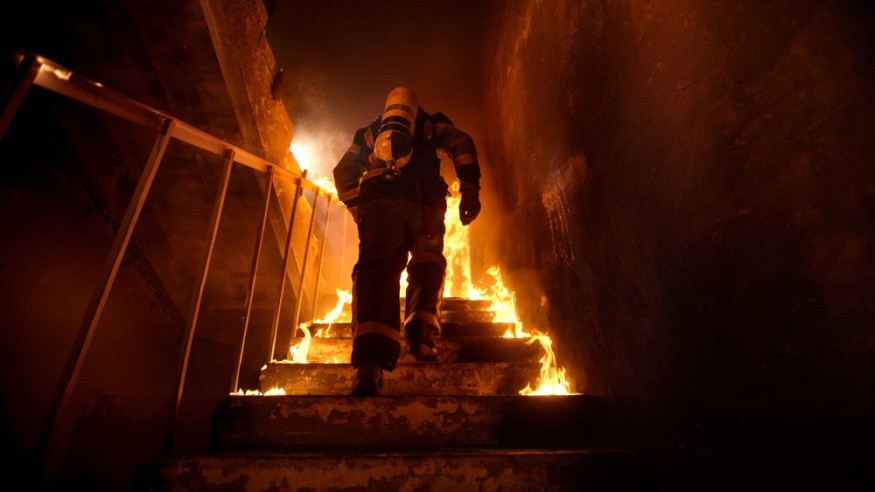
A fire science degree equips students with the knowledge of how to prevent fires and the ways to stop one. You'll also learn about fire behavior and investigation.
Students usually take up this degree if they want to become firefighters. Nonetheless, there are also other career paths that you can take aside from firefighting.
Here are a couple of career options available for those who graduate with a fire science degree:
1. Fire Protection Engineer
The study of fire prevention can help you become a fire protection engineer. With this, you're responsible for designing products and systems that prevent fire-related damage. You determine the possible causes of fires and help organizations set up the best precaution methods against hazards.
These are some of the duties of fire protection engineers:
Training - One responsibility of a fire protection engineer is to develop materials and conduct training sessions to impart valuable knowledge on how to prevent and defend structures against fire.
Auditing - You'll need to evaluate the existing fire safety measures put up by an organization and assess for vulnerabilities. Afterward, you must provide resolutions for the weak points in an organization's policies to ensure that they employ the best practices for fire protection.
Leading - You may also be asked to direct a team of installers and contractors in affixing fire safety accessories and devices. You'll have to lead the maintenance and repair of the equipment.
Consulting - Fire protection engineers must be adept at communicating with authorities on how organizations can comply with fire safety regulations and give advice on necessary changes to their structures or policies.
2. Fire Inspector
A fire inspector has a more specific role compared to fire protection engineers. These professionals are primarily responsible for checking the fire hazards present in various aspects of buildings and other structures.
They are experts on fire codes and make sure that each organization follows the best fire safety practices. Other job duties for a fire inspector includes assessing and collecting fees for building licenses as well as permits, testing equipment, and issuing citations for disregard of the rules.
Your local fire department typically hires fire inspectors. Other times, fire inspectors may be part of an agency that concentrates on this task.
3. Fire Investigator
If you're an aspiring sleuth and passionate about solving mysteries, you may want to go the fire investigator route. These professionals examine a fire scene that's believed to be caused by arson or criminal negligence.
Your responsibility as a fire investigator is to identify the cause and source of the fire. You'll have to photograph the scene, look for clues, collect evidence, and interview witnesses at the site. Then, you must report your findings to your team, department, or government.
Moreover, you are given the power to carry out warrants and arrest suspects. You're considered as an expert witness when the case is brought to court.
4. Forest Fire Prevention Specialist
Becoming a forest fire prevention specialist is a more specialized career path for fire science graduates. Basically, this profession is that of a firefighter working in national forests and parks.
You'll take your place in a watchtower and report any potential forest fire issues to the main station. The requirements for this role are similar to that of a city or town firefighter.
Forest fires are increasingly becoming more frequent and severe in intensity because of climate change. Typically, this type of fire is caused by low humidity and high temperatures, which you should take note of as a forest fire prevention specialist.
5. Emergency Medical Assistant
For those who are more interested in the health aspect of firefighting, you can focus on becoming an emergency medical assistant. A fire science degree offers a course on EMT basics, which you can expand with further education.
You can specialize in providing first-aid assistance to fire emergencies. This task includes assessing a victim's health status by checking for burns and evaluating if the injuries are minor or significant ones.
You'll also have to prepare a fire first-aid kit, which includes a manual, gauze pads, ointments, adhesive tapes, bandages, and antiseptic wipes, among others.
Conclusion
While the primary career path for fire science graduates is becoming a firefighter, you can take on more specialized routes, such as applying for a role as a fire protection engineer or fire inspector. You can also work as a fire investigator and determine the origin as well as the cause of fires, especially in arson-related scenes.
Another more specialized career option is to become a forest fire prevention specialist and take care of natural resources. Lastly, you can also opt to become an emergency medical assistant and provide first-aid help to victims of the fire.
© 2025 ScienceTimes.com All rights reserved. Do not reproduce without permission. The window to the world of Science Times.











